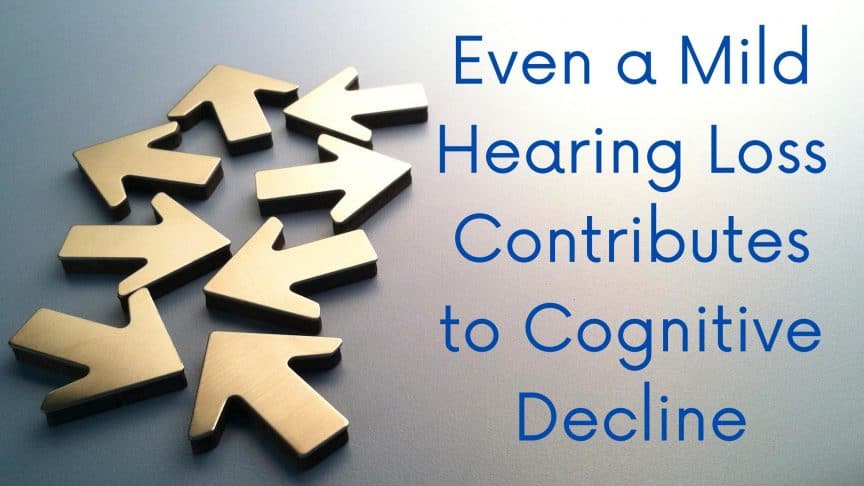- A Closer Look at Common Myths About Hearing Loss - May 7, 2024
- The Impact of Pets on Emotional and Hearing Health - April 26, 2024
- Strategies for Coping with Single-Sided Deafness - April 16, 2024
Hearing loss is different for everyone. Some people may have high-pitched hearing loss caused by exposure to noise, while others may have mid- or low-pitched hearing loss as part of age-related hearing loss.
Regardless of what caused your hearing loss, or what part of your hearing range is affected, hearing loss is categorized as mild, moderate, severe, or profound. If you have mild hearing loss, it might be barely noticeable. But that doesn’t mean it’s not affecting you.
One recent study found that untreated hearing loss, even mild hearing loss, can contribute to cognitive decline.
What is Cognitive Decline?
Cognitive decline refers to changes in how your brain functions. Cognitive decline can make it harder to remember things, learn new information, and even make decisions. Some signs of possible cognitive decline include:
- Forgetting important dates or facts
- Forgetting things that happened recently
- Having a hard time learning new things
- Feeling overwhelmed when you have to make a decision
- Having a hard time organizing tasks
- Taking longer to work out a solution to a problem
One of the most obvious signs of cognitive decline is changes in memory, either having a hard time forming new memories, or struggling to recall memories. In older adults, cognitive decline can be linked to dementia.
Hearing Loss and Cognitive Decline
A study published in 2019 in the JAMA Otolaryngology journal collected data from over 6,400 participants over the age of 50. Each participant performed cognitive tests and took a hearing test.
The researchers were looking at the connection between hearing loss and cognitive decline, and they found that participants with hearing loss were more likely to have cognitive declines. Participants with severe or moderate hearing loss had higher rates of cognitive decline. But even participants with mild hearing loss showed signs of cognitive changes.
Even adults with mild hearing loss scored lower on cognitive tests than adults with normal hearing. If you have a mild hearing loss, this study shows that it’s important to treat mild hearing loss as soon as possible to reduce your risk of cognitive decline.
How Does Hearing Loss Affect Cognitive Abilities?
Hearing loss can lead to cognitive decline. That’s because straining to hear puts a strain on your brain. “People with worse hearing use so much more brainpower to decode the words that are said, and they don’t get to process the meaning of what was said, which is the intellectually stimulating part,” explains the study’s author Dr. Justin Golub.
When you have hearing loss, all your energy goes into just hearing the words, and you’re not getting the right kind of mental exercise to keep your brain healthy. The parts of the conversation that are good for your brain are using critical thinking to understand the sentences, creating new memories, and choosing how to respond. When your brain is not stimulated in this way, you’re more likely to experience cognitive decline.
Do You Have Mild Hearing Loss?
Mild hearing loss can be hard to recognize at first. You may not realize that you’ve been missing a few sounds, or that you’ve been turning your good ear towards the person speaking. However, there are a few signs of mild hearing loss to watch for. These include:
- Turning up the volume on the TV to follow what’s happening on screen.
- Having a harder time following conversations on the phone.
- Missing words or phrases when there’s a lot of background noise.
- Noticing that you’re not hearing soft sounds like the wind in the leaves or the hum of the heater.
- Failing to determine where a sound is coming from.
Treating Hearing Loss
Treating mild hearing loss isn’t just good for your ears, it’s good for your brain. Hearing aids can help you hear clearly without straining to hear. Your brain will get the right kind of exercise, and you’ll reduce your risk of cognitive decline.
Have you noticed any of the signs of mild hearing loss? Or has someone in your family pointed out that you’re not hearing as clearly as before? It’s time to look after your hearing health! Start with a comprehensive hearing test. Together we’ll find out more about your unique hearing needs and explore your treatment options.

